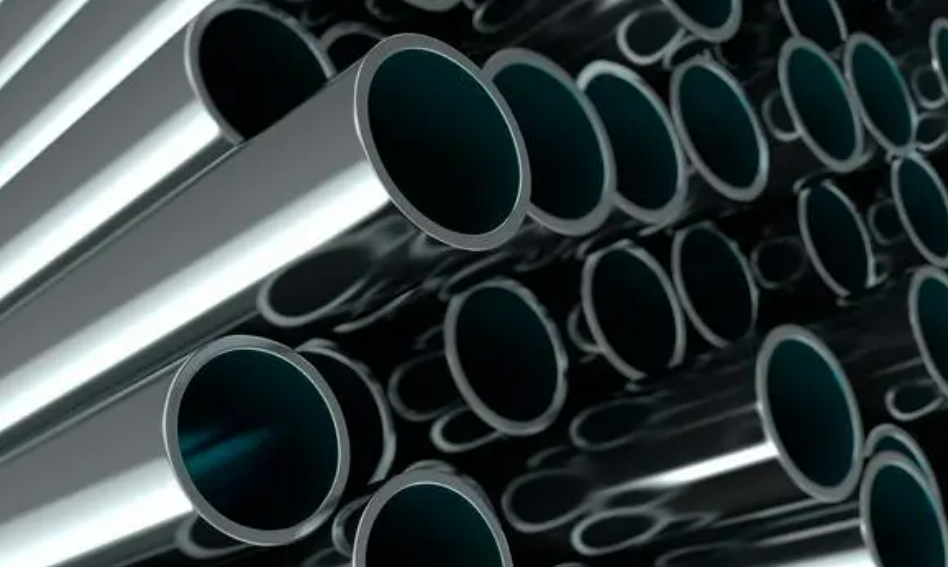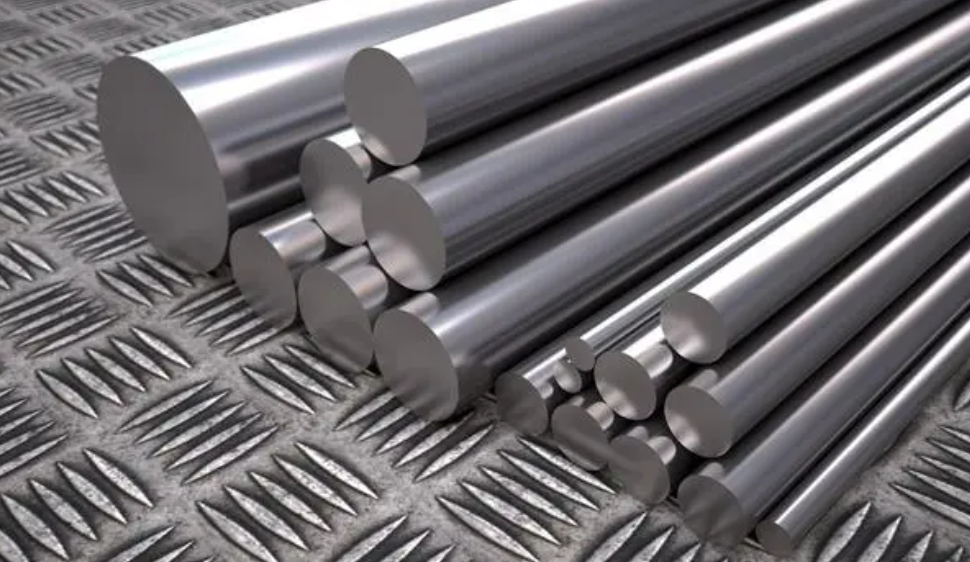409 stainless steel is a common ferritic stainless steel used in machinery, construction, and other engineering applications. Due to the presence of austenite grains, its mechanical properties are greatly improved, and its strength and hardness are also greatly enhanced due to the addition of many alloying elements. In this post, let’s take a look at the applications of 409 stainless steel.

Chemical Composition of 409 Stainless Steel
To understand the properties and applications of 409 stainless steel, it is first necessary to delve into its chemical composition. The alloy is primarily composed of iron, containing a significant amount of chromium (approximately 10-11%), along with small additions of nickel, manganese, silicon, carbon, and other elements.
The high chromium content of this stainless steel grade provides excellent corrosion resistance, making it suitable for a wide range of applications that require exposure to moisture or chemicals. The addition of nickel further enhances its resistance to atmospheric oxidation.
The addition of carbon ensures that 409 stainless steel has good strength and hardness. Manganese improves overall strength while also enhancing its weldability. Silicon contributes to improved oxidation resistance at high temperatures.
This unique combination of elements gives 409 stainless steel its distinct characteristics – excellent corrosion resistance along with good strength and heat resistance. It is worth noting that each of these elements plays a crucial role in determining the final performance of the alloy when used for different applications across different industries.

Physical Properties of 409 Stainless Steel
In terms of physical properties, 409 stainless steel has some impressive characteristics that make it a popular choice for various applications.
Let’s talk about its density. This stainless steel has a density of approximately 7.8 grams per cubic centimeter, which is relatively light compared to other alloys. This makes it suitable for applications where weight reduction is important.
When it comes to hardness, 409 stainless steel falls into the range of Rockwell B80-85, indicating that it has good wear resistance and is very suitable for components that experience high friction.
Another noteworthy physical property is its thermal conductivity. The range of thermal conductivity for 409 stainless steel is approximately 15 W/m·K at room temperature to approximately 25 W/m·K at high temperatures. This makes it a suitable choice for applications where heat dissipation is crucial.
Additionally, the alloy has excellent magnetic properties due to its ferritic structure. It has a strong magnetic attraction and can be easily magnetized or demagnetized as needed for specific applications.
When considering the coefficient of expansion (COE)—the degree to which a material expands or contracts with temperature changes—409 stainless steel has a relatively low COE compared to other steel grades such as austenitic steels.
These physical properties contribute to the versatility and usability of 409 stainless steel in various industries such as automotive manufacturing, exhaust systems, and food processing equipment!
Applications of 409 Stainless Steel
- 409 stainless steel is a widely used material due to its excellent corrosion resistance, high-temperature strength, and economy, making it widely applicable to various applications. Let’s explore some key application areas for this grade of stainless steel.
- One of the main applications of 409 stainless steel is in automotive exhaust systems. Its ability to withstand high temperatures and corrosion makes it an ideal choice for components such as mufflers, catalytic converters, and exhaust pipes. Additionally, its low cost compared to other stainless steels makes it an attractive option for manufacturers.
- Another common application of 409 stainless steel is in the manufacture of heat exchangers. The material’s thermal conductivity and resistance to thermal fatigue make it suitable for efficiently transferring heat between fluids or gases.
- In the construction industry, 409 stainless steel is often used for building cladding or roofing materials. Its durability and aesthetic appeal make it a great choice for both functional and decorative purposes.
- The food processing industry also relies on 409 stainless steel to manufacture equipment such as storage tanks, conveyor systems, and mechanical components that come into contact with acidic foods or beverages. Its corrosion resistance ensures hygienic conditions while preventing contamination.
- In addition, this grade of stainless steel is used in appliances such as ovens, grills, dishwashers, and more due to its ability to withstand high temperatures without deformation or corrosion.
Conclusion
Thank you for reading our article and we hope it can help you to have a better understanding of the applications of 409 stainless steel. If you want to find more information about 409 Stainless Steel, we’d advise you to visit Sino Stainless Steel for more information.
As a top supplier of 409 Stainless Steel across the world, Sino Stainless Steel provides customers with high-quality 409 Stainless Steel, 316 and 316L Stainless Steel, 201 and 202 Stainless Steel, Stainless Steel Hexagon Bars, Hot-rolled Stainless Steel Coils, Colored Stainless Steel Sheets, Stainless Steel Perforated Sheets, Stainless Steel Angle Bars, Cold-rolled Precision Stainless Steel Strips, Stainless Steel Wire, and Embossed Stainless Steel Plates at an extremely competitive price.
 :+86-13012867759
:+86-13012867759  :export86@sino-stainless-steel.com
:export86@sino-stainless-steel.com
The site offers many types of prescription drugs for easy access.
Anyone can securely order treatments without leaving home.
Our product list includes popular medications and more specific prescriptions.
All products is acquired via trusted suppliers.
https://vocus.cc/user/67faa75afd89780001e0079b
We prioritize customer safety, with data protection and prompt delivery.
Whether you’re treating a cold, you’ll find trusted options here.
Explore our selection today and experience stress-free online pharmacy service.
Наличие медицинской страховки во время путешествия — это важный шаг для финансовой защиты отдыхающего.
Страховка гарантирует неотложную помощь в случае несчастного случая за границей.
Помимо этого, полис может обеспечивать компенсацию на медицинскую эвакуацию.
осаго рассчитать
Определённые государства предусматривают предъявление страховки для пересечения границы.
Если нет страховки лечение могут привести к большим затратам.
Получение сертификата перед выездом
В этом разделе вы можете обнаружить свежую ссылку 1хБет без ограничений.
Мы регулярно обновляем доступы, чтобы облегчить стабильную работу к ресурсу.
Переходя через зеркало, вы сможете получать весь функционал без ограничений.
1хбет зеркало
Данный портал облегчит доступ вам быстро найти актуальный адрес 1xBet.
Мы следим за тем, чтобы все клиенты имел возможность получить полный доступ.
Следите за обновлениями, чтобы не терять доступ с 1хБет!
This platform allows you to hire workers for one-time hazardous missions.
Users can efficiently schedule support for specific requirements.
All workers have expertise in managing sensitive operations.
hire a killer
Our platform provides private communication between users and contractors.
Whether you need urgent assistance, the site is ready to help.
Post your request and get matched with a skilled worker instantly!
访问者请注意,这是一个面向18岁以上人群的内容平台。
进入前请确认您已年满十八岁,并同意了解本站内容性质。
本网站包含限制级信息,请理性访问。 色情网站。
若不符合年龄要求,请立即关闭窗口。
我们致力于提供健康安全的娱乐内容。
Looking for someone to handle a one-time dangerous task?
This platform focuses on connecting customers with freelancers who are willing to execute serious jobs.
If you’re handling emergency repairs, hazardous cleanups, or complex installations, you’ve come to the right place.
Every available professional is pre-screened and certified to ensure your safety.
order a killer
We provide transparent pricing, detailed profiles, and secure payment methods.
No matter how challenging the scenario, our network has the skills to get it done.
Start your quest today and locate the perfect candidate for your needs.
On this site is available valuable special offers for 1x betting.
These special offers make it possible to earn extra bonuses when playing on the website.
Every listed promotional codes are regularly updated to confirm their effectiveness.
When using these promotions you can significantly increase your opportunities on the betting platform.
https://forbesreleased.com/wp-content/pgs/?rasskaz_tuman.html
Furthermore, comprehensive manuals on how to redeem bonus codes are offered for ease of use.
Remember that particular bonuses may have time limits, so review terms before redeeming.
Our platform makes available a large selection of pharmaceuticals for ordering online.
Customers are able to quickly get essential medicines from anywhere.
Our range includes everyday medications and targeted therapies.
Each item is supplied through reliable providers.
kamagra jelly
We ensure discreet service, with private checkout and on-time dispatch.
Whether you’re filling a prescription, you’ll find safe products here.
Start your order today and enjoy convenient healthcare delivery.
The site offers a large selection of medical products for ordering online.
Anyone can easily access treatments with just a few clicks.
Our catalog includes everyday solutions and custom orders.
Each item is sourced from reliable providers.
cenforce 100
Our focus is on user protection, with encrypted transactions and prompt delivery.
Whether you’re managing a chronic condition, you’ll find safe products here.
Start your order today and experience trusted access to medicine.
1XBet Bonus Code – Vip Bonus as much as €130
Apply the 1xBet bonus code: 1xbro200 during sign-up on the app to unlock exclusive rewards offered by 1XBet and get €130 as much as 100%, for wagering along with a 1950 Euros with one hundred fifty free spins. Open the app followed by proceeding with the registration procedure.
The 1XBet promotional code: 1XBRO200 gives an amazing welcome bonus for new users — 100% up to $130 once you register. Promo codes are the key to unlocking extra benefits, also One X Bet’s promotional codes aren’t different. When applying the code, players may benefit of various offers at different stages in their gaming adventure. Even if you don’t qualify for the welcome bonus, 1xBet India makes sure its regular customers receive gifts with frequent promotions. Visit the Offers page on their website often to keep informed about current deals designed for loyal customers.
free 1xbet promo code
What 1xBet promo code is presently available right now?
The promotional code for 1xBet is 1xbro200, permitting novice players signing up with the betting service to access a reward of 130 dollars. To access unique offers pertaining to gaming and bet placement, kindly enter this special code for 1XBET while filling out the form. In order to benefit of such a promotion, prospective users must input the promo code 1xbet during the registration process to receive a full hundred percent extra for their first payment.
1XBet Promo Code – Special Bonus up to $130
Apply the 1XBet promotional code: 1XBRO200 during sign-up in the App to unlock exclusive rewards given by 1XBet for a €130 as much as 100%, for sports betting along with a €1950 featuring one hundred fifty free spins. Start the app followed by proceeding with the registration process.
The One X Bet bonus code: 1xbro200 gives an amazing sign-up bonus for first-time users — full one hundred percent maximum of €130 upon registration. Promotional codes serve as the key for accessing bonuses, plus 1xBet’s bonus codes aren’t different. After entering this code, players have the chance from multiple deals in various phases of their betting experience. Although you aren’t entitled for the initial offer, 1xBet India makes sure its regular customers are rewarded with frequent promotions. Check the Promotions section on their website frequently to stay updated regarding recent promotions designed for loyal customers.
https://diigo.com/0zmxr1
Which 1XBet promo code is now valid right now?
The bonus code for One X Bet equals Code 1XBRO200, permitting novice players registering with the bookmaker to unlock a reward of €130. To access special rewards related to games and sports betting, kindly enter the promotional code concerning 1XBET while filling out the form. To make use from this deal, prospective users should enter the promo code 1XBET at the time of registering step for getting double their deposit amount for their first payment.
В данном ресурсе вы можете найти актуальные промокоды от Мелбет.
Воспользуйтесь ими при регистрации на платформе чтобы получить до 100% на первый депозит.
Также, доступны промокоды для текущих акций и постоянных игроков.
мелбет промокод
Следите за обновлениями в разделе промокодов, чтобы не упустить выгодные предложения в рамках сервиса.
Каждый бонус тестируется на актуальность, и обеспечивает безопасность при использовании.